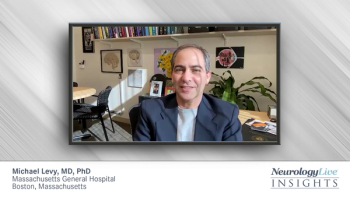
A panelist discusses how neurologists can adapt their NMOSD management strategies based on recent findings about relapse and hospitalization rates, sharing practical advice and clinical experience for optimizing patient outcomes.

A panelist discusses how neurologists can adapt their NMOSD management strategies based on recent findings about relapse and hospitalization rates, sharing practical advice and clinical experience for optimizing patient outcomes.

A panelist discusses how comparing hospitalization rates, relapse risks, and safety considerations between rituximab and other NMOSD therapies, such as complement inhibitors, can provide valuable insights to guide treatment decisions, manage healthcare costs, and optimize patient quality of life.

A panelist discusses how when treating NMOSD, neurologists should consider the patient's clinical characteristics, safety profiles, administration requirements, and cost-effectiveness when selecting between FDA-approved therapies such as eculizumab, inebilizumab, satralizumab, ravulizumab, and rituximab. Shared decision-making is crucial, involving close collaboration between the healthcare team and the patient to develop a personalized treatment plan that considers the patient's overall well-being.

Michael Levy, MD, PhD, discusses how Aquaporin-4 IgG-seropositive neuromyelitis optica spectrum disorder (AQP4-IgG+ NMOSD) is a rare autoimmune condition affecting the central nervous system. Anti-CD20 therapies, particularly rituximab, have led to increased relapse rates.
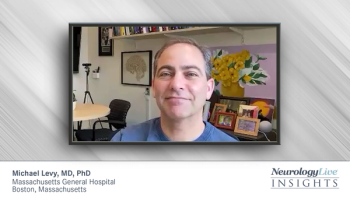
This discussion examines the 138-week data on ravulizumab for NMOSD, focusing on long-term relapse rates, and share practical tips for effective NMOSD management in clinical settings.

This discussion examines how disability accumulation may be influenced by the use of less efficacious treatments, compares the efficacy of novel and traditional NMOSD agents in clinical practice, and reviews relapse rates associated with FDA-approved treatments versus off-label and older therapies.

This discussion covers the factors leading to relapses and recurring attacks in NMOSD, how disease severity and relapses contribute to disability accumulation, and their impact on patients' quality of life.
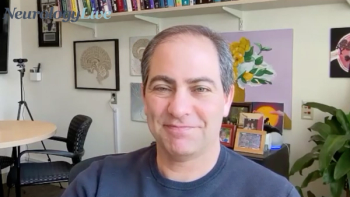
The associate professor of neurology at Harvard Medical School discussed how clinicians face the challenging decision with their patients in choosing between off-label and approved medications for NMOSD. [WATCH TIME: 4 minutes]

The associate professor of neurology at Harvard Medical School talked about findings from a recent case series of patients with NMOSD initially on rituximab who then switched to inebilizumab. [WATCH TIME: 4 minutes]
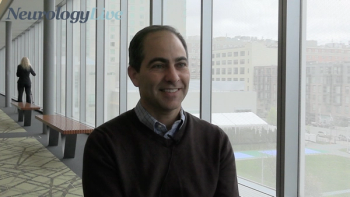
The associate professor of neurology at Harvard Medical School talked about the subgroup analysis on ravulizumab in NMOSD that was presented at the 2023 AAN Annual Meeting. [WATCH TIME: 5 minutes]
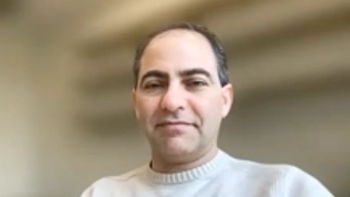
In a recent interview, the associate professor at Harvard Medical School spoke about patient-centered research in the advancing treatment for patients with NMOSD. [WATCH TIME: 5 minutes]

The associate professor at Harvard Medical School talked about the currently approved therapies and the state of care for patients with NMOSD from a clinician perspective. [WATCH TIME: 5 minutes]

The associate professor at Harvard Medical School spoke with NeurologyLive® about the differences between patients with multiple sclerosis and those with NMOSD. [WATCH TIME: 3 minutes]
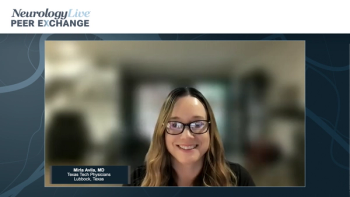
Drs Mirla Avila, Mitzi Williams, Michael Levy, and Michael Yeaman comment on research and development priorities for clinical care and emerging therapies for NMOSD.
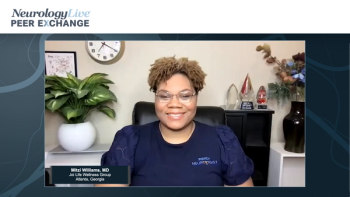
Mitzi Williams, MD; Mirla Avila, MD; Michael Levy, MD, PhD; and Michael Yeaman, PhD, explore how health care professionals can better engage diverse racial and ethnic groups with NMOSD to improve care and enroll in clinical trials.
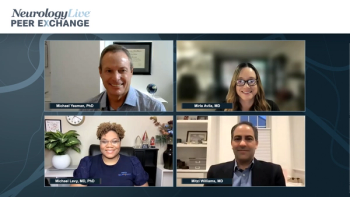
Experts in neurology review the occurrence and severity of infections in women and special patient populations with NMOSD and share their thoughts on the use of vaccines to prevent infections.
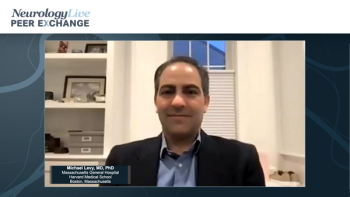
Michael Levy, MD, PhD, leads a discussion on the safety and efficacy of FDA-approved therapies for the management of NMOSD.

Mitzi Williams, MD; Mirla Avila, MD; and Michael Levy, MD, PhD, highlight gaps in care in NMOSD therapy.

Drs Mirla Avila, Mitzi Williams, Michael Levy, and Michael Yeaman provide insight on goals of therapy and the importance of mental health and symptom management for patient populations with NMOSD.

Mitzi Williams, MD; Mirla Avila, MD; and Michael Levy, MD, PhD, discuss their approach to optimizing treatment selection when it comes to newer therapies, cost, and accessibility of therapies.

Experts in neurology share their experiences with how patients with NMOSD are utilizing health care, and helping patients achieve optimal care.
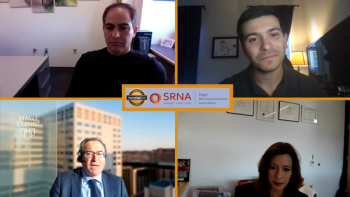
Experts such as Brenda Banwell, MD; Sean Pittock, MD; and Michael Levy, MD, PhD, cover topics related to differences in rare neuroimmune disorders, how they're approached and treated.

Mirla Avila, MD, leads a discussion on the impact of NMOSD on women’s health and the role of continued education for physicians.

Drs Michael Levy, Mirla Avila, Mitzi Williams, and Michael Yeaman assess atypical presentations of NMOSD and the importance of building trust in a patient-provider relationship.

Mirla Avila, MD; Mitzi Williams, MD; Michael Levy, MD, PhD; and Michael Yeaman, PhD, review the role of a multidisciplinary team and gaps in the chain of care in the management of NMOSD.

Experts in neurology share considerations and challenges for health care providers in diagnosing NMOSD, including education for non neurology health care providers and available diagnostic assays.

Mitzi Williams, MD, leads a discussion on the impact of the disease on quality of life for patients with NMOSD and their families.

Mirla Avila, MD; Michael Levy, MD, PhD; and Mitzi Williams, MD, share the clinical presentation and progression of NMOSD among various racial and ethnic groups and highlight the effects of socioeconomic disparities and personal barriers on access to proper care.

Drs Mitzi Williams, Mirla Avila, and Michael Levy comment on the differences in pathogenesis in various patient populations affected by NMOSD as it relates to genetics, comorbidities, and immune tolerance.

Michael Levy, MD, PhD; Mitzi Williams, MD; and Mirla Avila, MD, examine the genetic, behavioral, and cultural determinants of NMOSD prevalence and incidence.
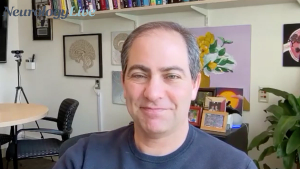
Published: May 20th 2024 | Updated: May 21st 2024

Published: May 16th 2024 | Updated: May 20th 2024
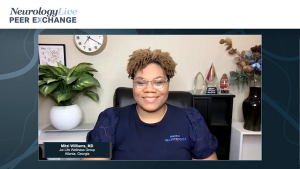
Published: September 16th 2022 | Updated:

Published: September 9th 2022 | Updated:
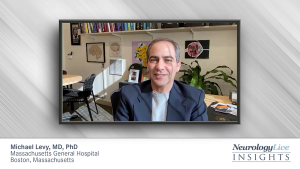
Published: November 25th 2024 | Updated:
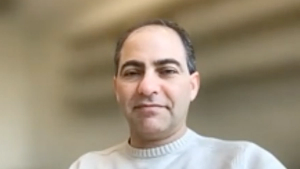
Published: March 15th 2023 | Updated: